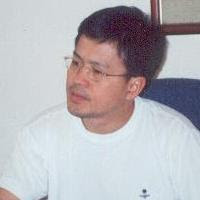We live by the calendar everyday. What’s so special about calendar? In fact, it is a fair question. If we are not interested in calendar, certainly we won’t notice that we actually lost 10 days by the time when the Pope ordered to change from Julian calendar to Gregorian calendar on October 4, 1582. It become October 15, 1582 in Gregorian calendar the next morning.
Chinese does not have discontinuity in calendar. Ever since Emperor Xuan-yuan (軒轅黃帝 Xuan-yuan Huang-di) ordered to make calendar, his officials were trying very hard to build a calendar system and hoping that it can be accurately representing the motions of the sun and the moon and hence the Yin-Yang Calendar (陰陽曆) which combines the Solar Calendar (太陽曆 Tai-yang Li) together with the Lunar Calendar (太陰曆 Tai-yin Li). They even built a presentation system using the Heavenly Stems (天干 Tian-gan) and Earthly Branches (地支 Di-zhi) for recording year, month, day, and even 辰 (or Chen, 2-hour period in a 24 hours per day system).
Considering Yin and Yang, the 10 Stems and 12 Branches produce a Sexagenary Cycle which the Chinese people refer it as 六十甲子 (Liu-shi-jia-zi). Starting from 甲子 (Jia-zi) as the very beginning, then followed by 乙丑 (Yi-chou), 丙寅 (Bing-yin), 丁卯 (Ding-mao), etc., till it reaches 癸亥 (Gui-hai) as the end of the Cycle, then restarts from 甲子 again. This recording system has never been interrupted since the day of launch. It has been in fact used as a reference check when people were making new calendars throughout the entire Chinese history. Though China is not officially using this recording system today, the Chinese community throughout the world are still using it.
We do not have the exact year which Huang-di had ordered to launch this recording system because it was just simply too far off from now and that there was no single piece of record whatsoever to at least give us a hint to trace. Some were saying during 2637BCE, which is the year of 甲子. Does that means Chinese Calendar is having a 60-year epoch? If it were really that easy, why do we have to bother to observe the sun, the moon, the planets, and even some of the stars in order to make a good and accurate calendar. Without an accurate calendar, how could Huang-di possibly teach people when to plow, to seed, to harvest, and when to do whatever appropriate in farming activities.
The recording system might start from 2637BCE, but it has nothing to do with calendrical calculation. In calendrical calculation, we have only astronomical calendar as well as civil calendar.
Monday, October 13, 2008
Subscribe to:
Post Comments (Atom)

No comments:
Post a Comment